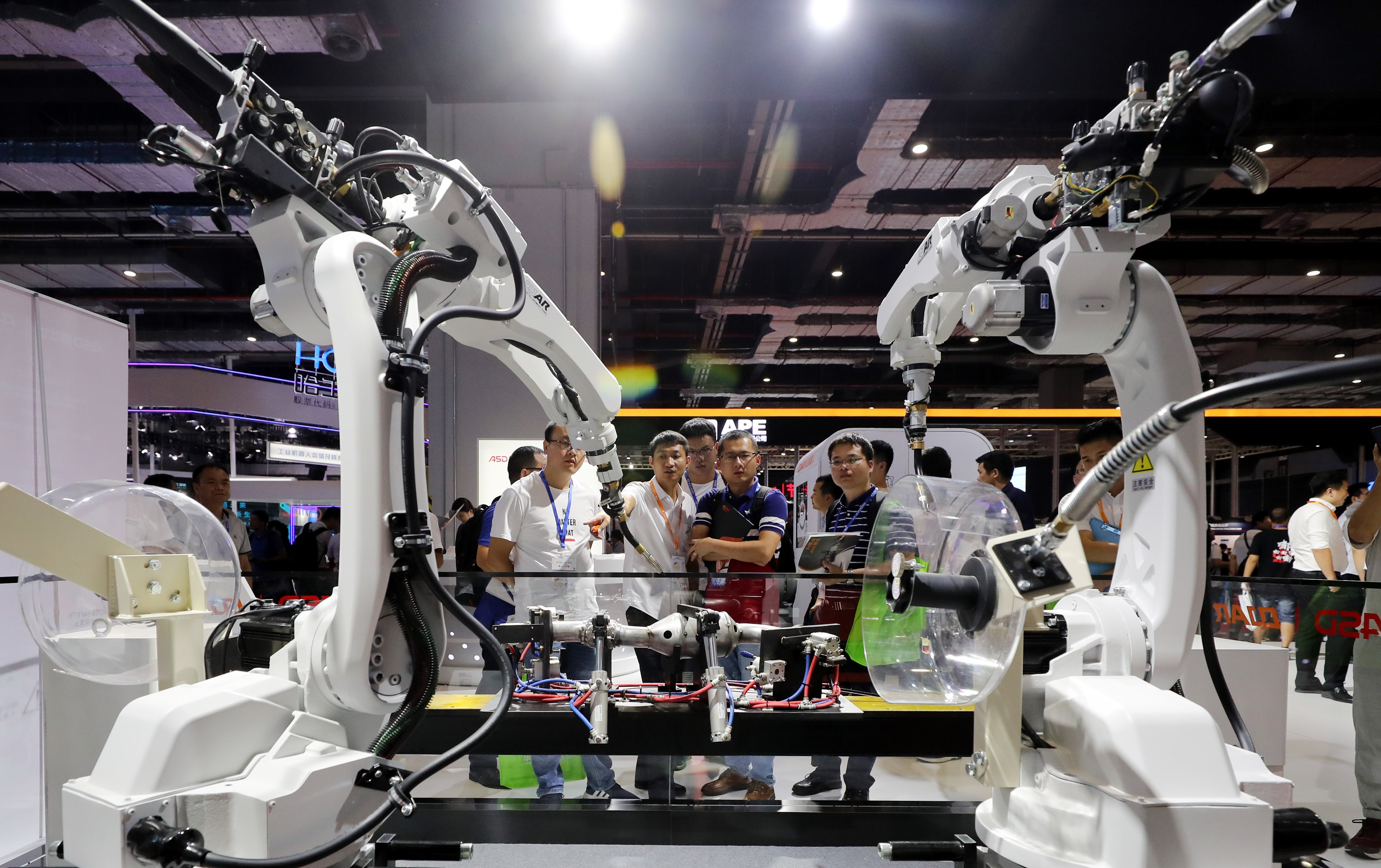Pushing China's high-end manufacturing industry
- By Daniel Hyatt
 0 Comment(s)
0 Comment(s) Print
Print E-mail China.org.cn, September 18, 2019
E-mail China.org.cn, September 18, 2019

China has transformed from an agrarian economy into an industrial powerhouse in an unbelievably short period of time. Thanks to its approach of top-down policy implementation, widespread industrialization was achieved and paved the way for the rapid growth of the national economy.
Now that the industrial sector is fairly mature, focus is shifting toward its qualitative evolution and manufacturing is seeing a new phase of expansion while adopting intelligent and interconnected systems.
That's also the theme of the China International Industry Fair (CIIF) which is being held in Shanghai on September 17-21. The exhibition has been held annually for more than 20 years, demonstrating China's manufacturing prowess and providing a platform for global exchanges.
5G and industrial internet
A key highlight of the fair is the close association of 5G and industrial internet that is bolstering the country's manufacturing capacity. By the end of last year, around 50 industrial internet platforms with considerable regional influence had sprung up.
The industrial internet is basically the foundation of automated manufacturing that draws upon powerful interconnected machines and big data analysis. It increases productivity, reduces costs and enhances the efficiency of the entire process. The national drive for high-quality development can be adequately supplemented by making the technology an essential upgrade element since it leverages the latest digital tools.
A new gateway has opened in this field with the advent of 5G and its ability to handle large amounts of data at incredibly high speeds. As the deployment of 5G networks gains pace, the industrial sector is positioned to be a major beneficiary. The imminent commercialization of 5G will further economize the facilities and improve the security of services. With its appropriate utilization, China can comfortably retain its leadership well into the age of sophisticated and specialized production.
At such a crucial juncture, manufacturers who are still using traditional methods should remold their plants and take full advantage of the industrial internet. They will have to embrace cloud and information services and bring their systems online. Meanwhile, those already on the grid need to invest in 5G as soon as possible to remain competitive.
This is an excellent opportunity for companies making integrated circuits to come forward and develop their hardware on par with international standards. At the same time, these domestic entities will be competing with the foreign enterprises rushing to China to capitalize on the booming 5G market. The government is encouraging foreign investment in high tech industries and advanced manufacturing, as a draft catalog released early this year reveals. With the competition heating up, the uplift in this area is expected to accelerate.
Intelligent manufacturing
The CIIF will be focusing on the growing appetite for premium products that has increased the demand for AI-augmented manufacturing. China is the largest intelligent manufacturing market in the world, with the concept applied in more than 200 establishments. According to one estimate, the market will rise to 220 billion yuan by 2020.

The most prominent embodiment of intelligent manufacturing is robots. Demographic trends like rising wages in coastal areas and an aging population have made them more mainstream. Several factories in industrially modernized provinces have also integrated robots to maintain economically viable production.
There has been a significant improvement in their proficiency and, unlike the past when they were used only for assembling goods, they are now increasingly being employed for complicated and even delicate jobs.
In addition, breakthroughs are enabling factories to introduce software-defined devices in tasks that previously required long and tedious man-hours. This is a tectonic shift in the work environment as machines are starting to replace people.
While factories may need lesser human input at assembly lines, the types of skills becoming valuable now are more digital in nature. This change in the requisite talent can be offset by professional and vocational training programs because the demand for machine learning and AI experts will skyrocket in the coming years.
The government has also been playing its due role. The Central Committee for Financial and Economic Affairs, during a meeting in August, resolved to elevate basic industries and industry chains. Relying on innovation capability, it plans to combine its support with market mechanisms to facilitate their independence. By utilizing intelligent technologies, China's industry will continue to expand and spearhead the country's path to progress.
Daniel Hyatt is a Pakistan-based freelance journalist and commentator on modern China.
Opinion articles reflect the views of their authors only, not necessarily those of China.org.cn.
If you would like to contribute, please contact us at opinion@china.org.cn.





